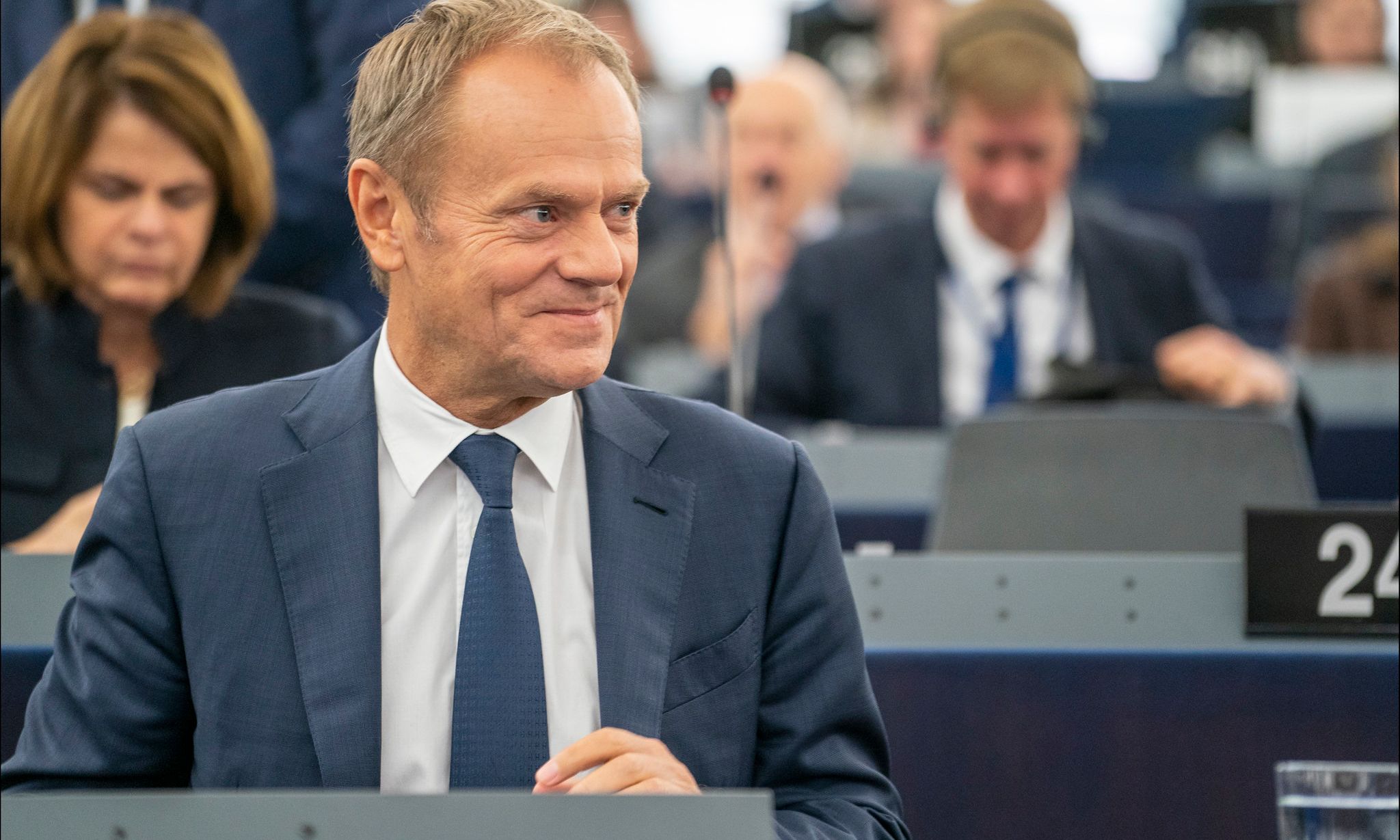Donald Tusk is the head of the Civic Coalition party
Members of Poland’s art community have cautiously welcomed the results of Sunday’s general election, which looks set to remove the ruling right-wing government from power.
The governing Law and Justice (PiS) party won 35.4% of the vote, leaving it short of being able to form a majority in the Polish parliament. In its place, a broad swathe of opposition parties will now seek to form a coalition to lead the country, headed by Donald Tusk’s Civic Coalition, which came second with 30.7%.
With PiS often accused of taking an ideologically driven approach to culture, many in the arts are relieved that the party appears to have failed to secure an unprecedented third term in office.
As Jakub Dąbrowski, a professor at the Academy of Fine Arts in Warsaw, explains, “Certainly, the art community consists of people who support PiS, but those who don't, and they make up the majority, feel relieved. People are filled with hope and pride as voter turnout reached almost 75%, and the democratic legitimacy for the opposition is remarkably strong.”
Even so, Dąbrowski says the opposition’s “somewhat exotic conglomerate of leftist and moderately conservative parties” will face “lots of challenges in the cultural sphere”. Expressing his opposition to a politically motivated purge of arts leaders appointed by PiS, Dąbrowski adds that, “Culture has to be managed by experts once again and the foundation for state-culture relations should be based on substantive evaluation rather than the ideological agenda of a ruling party.”
Adopting a less optimistic line, Maria Anna Potocka, the director of the Museum of Contemporary Art in Krakow MOCAK, says that while there is hope in the expectation that an opposition-led government will not follow PiS in taking such an interventionist approach, the general lack of political interest in culture remains a “curse of Poland”.
Jarosław Suchan, the former director of the Museum Sztuki in Łodz who was dismissed by the PiS government, says that, “The time of PiS's rule will not be remembered fondly by most of the cultural community.” While noting the government spent more on culture than its predecessors, Suchan argues the money “was spent selectively, on events and institutions consistent with the PiS ideological line.” He adds that, “progressive, experimental culture, open to all diversity, could only develop thanks to the support of local governments and private funds. Besides, when it comes to wages in culture, they still remained very low, despite the large governmental expenditures on culture.”
“For all these reasons”, Suchan says, “the cultural community welcomes the upcoming political changes, but without any illusions that everything will be fixed immediately and that everything will be better immediately. We still have a long way to go and as a community we cannot passively wait for events to unfold.”
On the political level, the path to a new government is now in the hands of Poland’s President, Andrzej Duda, who may first allow PiS the chance to form an administration before turning to Tusk and his fellow opposition leaders.

